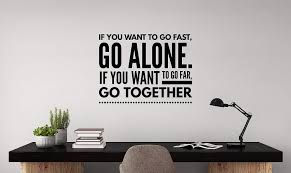“Take as Long as Possible:” Slow Learning & Realized Dreams
- Anna Byrne

- Sep 18, 2022
- 4 min read
Twelve years ago, in September 2010, I entered seminary. Since my cancer diagnosis the year before, my spiritual life had been combusting. I was being blown open in ways that I could scarcely keep up with and it seemed like studying theology might help. My spiritual life had already changed substantially with the death of my Dad in 2004. With his death, I had awoken to fragility, vulnerability, and gratitude, and these led me down a path of greater self-knowledge and deeper relationship with others. After my diagnosis, I knew that things were about to radically shift again.
The closest seminary was Ecumenical Theological Seminary, five minutes across the border in downtown Detroit. I took my classes one or two at a time in order to savour them amid the rigour of blood labs, treatments, and the general unpredictability of living with a serious illness. The building was drafty and funding always seemed tight. A soup kitchen was held in the basement every Wednesday. The learning I did there was some of the best I’ve done about putting back together the work of the head, the heart, and the hands. I learned that mature spirituality always leads to social justice. I learned that the Gospel should be Good News or it’s not the Gospel.
Then, about four years in, when it looked like my time on earth was limited, I let go of my coursework. I’ve always loved learning and I felt sad that I would not achieve the goal of earning my Master’s degree. But during the next few years, other good things happened. I got married. We moved to BC. And I recovered from cancer. I spent a few years marveling in all of that. And it took a few years for my body and spirit to shake off the anxiety and strain of so much medical care and to truly settle in for whatever would come next in my life.
In 2019, with more space in my life, I started thinking about that theology degree again. I applied to finish my degree, this time through an online program with the University of Toronto. Again, I took one or two classes at a time. During my first semester, it became clear to me that my spirituality had continued to undergo a process of change in the years since I had left seminary. I took the teachings with a grain of salt, placing them alongside my own understanding and experiences and the teachings of many others whom I respected. I learned that formal education is only one way of learning and it has its limitations.
This past year, my last, I embarked on my summative project—an integrative look at spirituality as it relates to Medical Assistance in Dying (MAiD) in Canada. I felt it was a good melding of my background in hospice care and my interest in spirituality. The project culminated in an 80-page paper and this spring, I earned my Master of Theological Studies degree.
The best piece of advice I’ve heard about higher education comes from Bob Kull, a UBC professor who, after dropping out of university as a young adult, went back to earn his undergrad at the age of forty. He stayed in school for the next decade, going on to earn his Master’s and PhD.
Kull was once asked to give a piece of advice to new students. He offered them something to this effect: “Take as long as possible.”
Take as long as possible is almost unheard of in higher education. Our education system is often set up to have students produce as many assignments as possible without adequate time for integrating their learning in meaningful ways. When I was an undergrad student 25 years ago(!) I sometimes viewed my studies as an annoying means to an end, a chore to be finished as quickly as possible so that I could get on to what I really wanted to do. Going back to school in my forties, I have needed and appreciated more time to digest what I learn. Having the means to learn like this isn’t always possible, and it is a privilege.
But I think what Kull is advocating for is a return to an appreciation of education for the sake of education itself. It’s a return to understanding that education is a gift, a privilege, and an ethos. Slow learning is a way of viewing and engaging with education that isn’t just about definitive answers or achieving. It’s about steeping ourselves in better questions.
I took my time with education and in return it gave me growth, wisdom, and self-understanding. I gained humility in the awareness of how little I truly know and grew in my desire to keep asking questions.
Twelve years ago, I started my Master’s degree. I took as long as possible and lived to see its end. For that, I’m grateful.

Bob Kull, "Solitude: Seeking Wisdom in Extremes: A Year Alone in the Patagonia Wilderness," California: New World Library, 2008.



Beautiful! Amen! Congratulations! Savor. Savor savor.
See you next week!